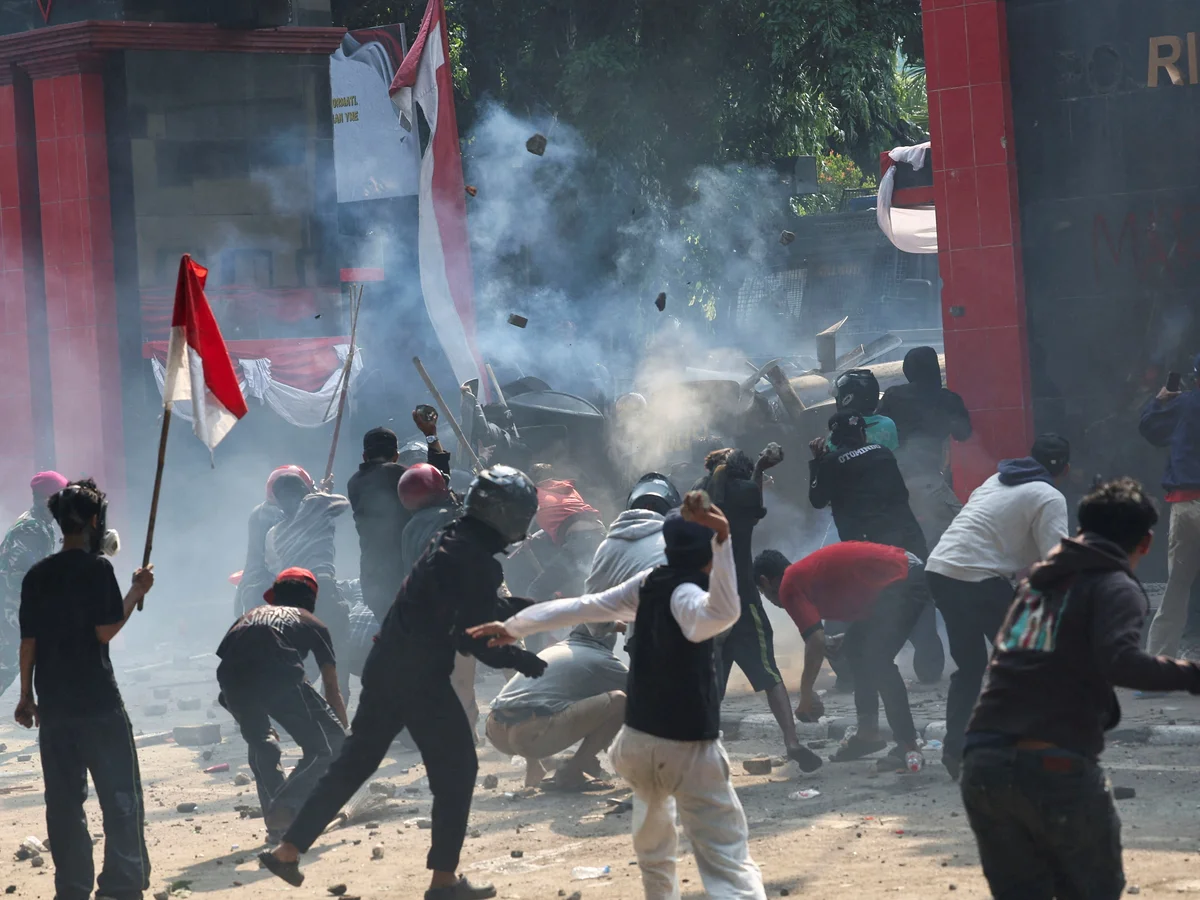Indonesia has descended into one of its most turbulent moments in recent history, as nationwide protests over police brutality and controversial economic policies intensified over the weekend. A particularly alarming flashpoint occurred in the city of Bengkulu, where security forces fired tear gas into the courtyard of the revered Baitul Izzah Grand Mosque — a move that has drawn outrage across the predominantly Muslim nation.
The unrest, now spreading across multiple provinces, was sparked by the death of 27-year-old Affan Kurniawan, a motorcycle taxi rider who was fatally struck by police during a protest in Makassar on Thursday. The demonstration had originally been organised to oppose recent pay cuts imposed on civil servants, as well as growing anger over what many see as an unearned increase in perks for lawmakers. A viral video showing the moment of Kurniawan’s death ignited a wave of fury that has since ballooned into full-blown civil unrest.
From Jakarta to Surabaya, Yogyakarta to Medan, demonstrators have poured into the streets demanding justice, accountability, and economic reforms. In some regions, the protests have turned violent, with government buildings being torched and clashes breaking out between civilians and riot police. In Lombok, a local council office was reduced to ashes, while in Surabaya, a police headquarters was set ablaze—signalling the depth of public frustration with both law enforcement and state policies.
President Prabowo Subianto, now barely a year into his administration, addressed the nation on Friday evening in a bid to calm tensions. He pledged a “thorough and transparent investigation” into the death of Kurniawan, but simultaneously authorised security forces to take “decisive action” against protesters who break the law. This dual approach has done little to restore public confidence, as many view the government’s response as both heavy-handed and insufficiently empathetic.
The heart of the economic discontent lies in the government’s austerity programme, which has introduced cuts to public sector benefits in order to fund President Subianto’s flagship $1 billion free school meal initiative. While the policy has been hailed in some quarters as a bold attempt to address child malnutrition, critics argue it has come at the unacceptable cost of slashing civil servant wages and benefits.
Fuel was added to the fire when it was revealed that members of parliament continue to enjoy housing allowances that are nearly ten times higher than Jakarta’s minimum wage, even as ordinary Indonesians are being asked to tighten their belts. This stark disparity has lent momentum to the protest movement, uniting civil servants, students, labour unions, and religious groups under a common cause.
The most controversial moment in the escalating unrest came on Saturday, when tear gas canisters were launched into the courtyard of Masjid Baitul Izzah in Bengkulu — a sacred space that had been hosting peaceful demonstrators. The act has drawn condemnation from across the religious and political spectrum, with many accusing security forces of desecrating a place of worship. Leading Islamic scholars have called the incident a dangerous overreach that could further polarise the public and deepen societal divides.
Meanwhile, social media has played a pivotal role in the mobilisation efforts, with platforms like TikTok becoming central to live coverage of the protests. In response, TikTok has suspended its live streaming feature in Indonesia, citing safety and moderation concerns. However, the move has also raised alarms about digital censorship and freedom of expression.
As the protests stretch into their fifth day, Indonesia stands at a critical crossroads. With public trust in government institutions waning and outrage boiling over in cities from Sumatra to Sulawesi, President Subianto’s leadership is facing its most severe test yet. The international community is closely watching, while citizens within the archipelago continue to demand justice—not just for Affan Kurniawan, but for the millions struggling under the weight of inequality and a perceived erosion of democratic accountability.

